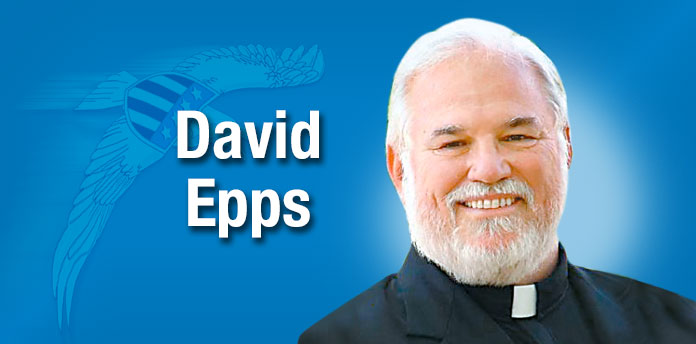In the past, I never gave much thought to family origins. It was a given that the bulk of my DNA was likely European. However, I never thought of myself as a “European-American,” or as an “English-American,” or any other designation that carried with it a hyphen.
If I had any identification other than “American,” it was “Tennessean,” or more specifically, an “Upper East Tennessean.” The home in which I grew up was five miles from Virginia and between forty to fifty miles from North Carolina. I suppose, if one must use a hyphen, I come from a long line of “Appalachian-Americans.”
My roots in Tennessee go back to, at least, five generations and the mid-1800s. The first Epps family, from what I can discern, arrived from England to the shores of Virginia in 1623. As time passed, the families spread out, heading north, west, and south. They became integrated into whatever culture was around them.
When I was in my early 20s, I saw a couple of very old, framed photos in my dad’s basement. He had owned and operated an antique store some years before, so the old photos were not much of a surprise. What was a surprise was my father informing me that the man and woman in the photo were my great-great grandparents.
His name was Alexander Epps but I’m not sure which woman was in the photo. Alexander’s first wife died and he re-married. Nevertheless, it was, for me, quite a find.
Having a name and a location, I began to investigate the history of this family as time permitted. I discovered that Alexander Epps was a veteran of the War Between the States and served with C Company, 63rd Regiment, Tennessee Infantry, Confederate States of America.
In December of 1863, he was captured at the Battle of Bean’s Station and delivered to the POW facility in Louisville, KY. At the end of the war, he returned home to Hawkins County where he resumed his task as a sharecropper in a place called “Poor Valley.”
Only recently, I have discovered that another great-great-grandfather also served during the Civil War. I have temporarily misplaced his name, but this ancestor fought with Union forces. There is much I do not know about him yet, but this much I do know: He was killed in action at the Battle of Petersburg, in Virginia.
Ironically, during most of 1970, I joined several other Marines after boot camp at a six-month long school at the army base of Fort Lee, Virginia — just outside Petersburg.
Two great-great-grandfathers, both my ancestors, both Americans, both doing their duty as they saw it, both embroiled in a divisive and brutal war that tore the country apart. One was a POW, the other a KIA. Both had families that would survive the war and rebuild as they were able.
Now, my relatives from the two men, most of whom I do not know and will never meet, live in a nation that is, once again, severely divided. The issues are different but the hostility among people on opposite sides is, once again, threatening to tear the country apart. Once again, friends and family members find themselves divided.
It took nearly 100 years before the nation overcame the anger, bitterness, and hostility of Americans taking up arms against each other. Arguably, it took another war — that of the Allies against the Axis Alliance — to bring Americans together, united against a common enemy.
For a short while, September 11, 2001 brought the nation together again. But that has come and gone. One would hope that the people elected to govern would bring the nation together, but that is not happening.
In 1858, during a campaign speech, Abraham Lincoln referred to Luke 11:17 where Jesus said, “Every kingdom divided against itself will be laid waste, and a house divided against a house will fall.”
Lincoln said, “A house divided against itself cannot stand. I believe this government cannot endure, permanently half slave and half free. I do not expect the Union to be dissolved — I do not expect the house to fall — but I do expect it will cease to be divided. It will become all one thing or all the other.”
The house did, in fact, nearly fall. For it to survive cost approximately 1.5 million casualties, including 750,000 deaths (www.facinghistory.org).
Cooler heads must prevail. Statesmanship must replace partisanship. Listening and discussing must replace yelling and accusing. Otherwise, we may well be watching the beginning of the end of this great experiment that we call “America.”
[David Epps is the Rector of the Cathedral of Christ the King (www.ctk.life). Worship services are on Sundays at 10:00 a.m. and on livestream at www.ctk.life. He is the bishop of the Diocese of the Mid-South (www.midsouthdiocese.life). He may be contacted at [email protected].]













Leave a Comment
You must be logged in to post a comment.